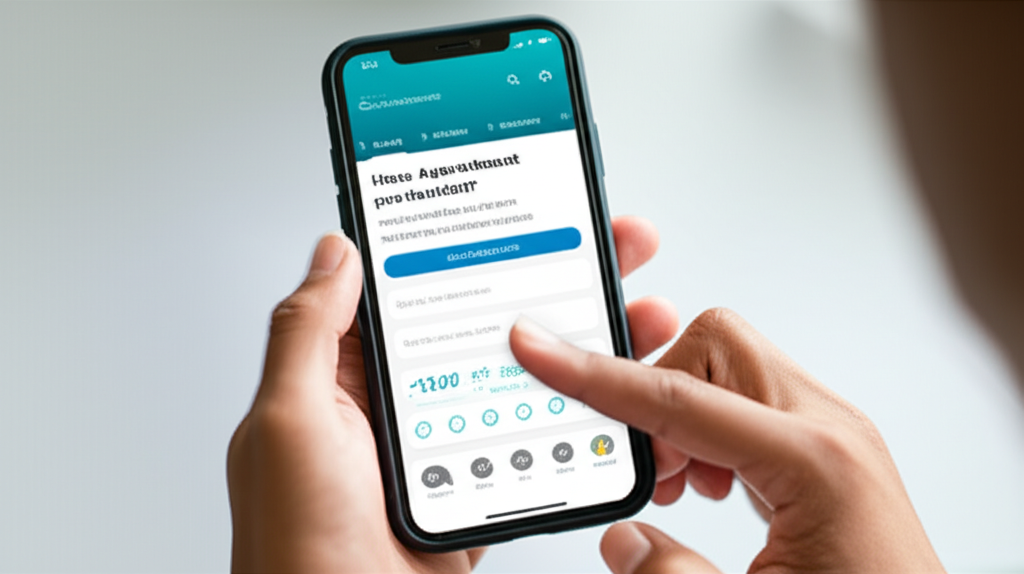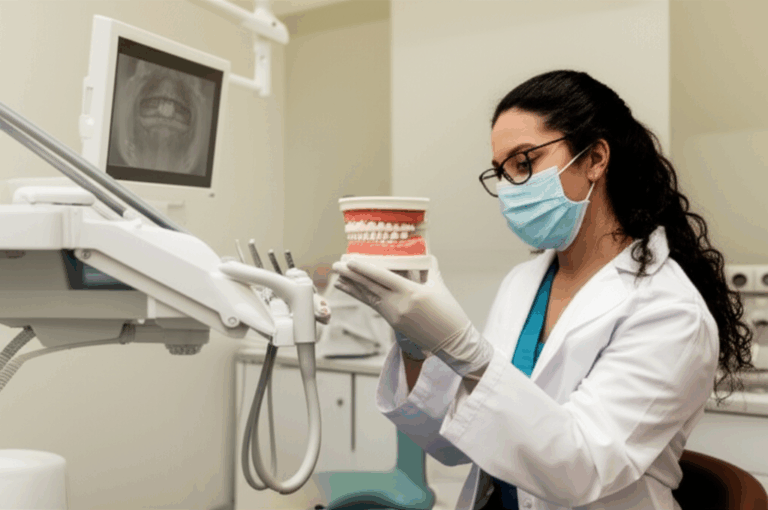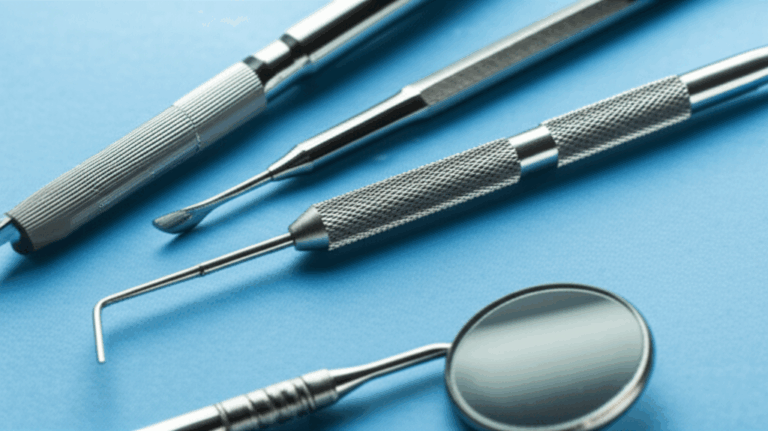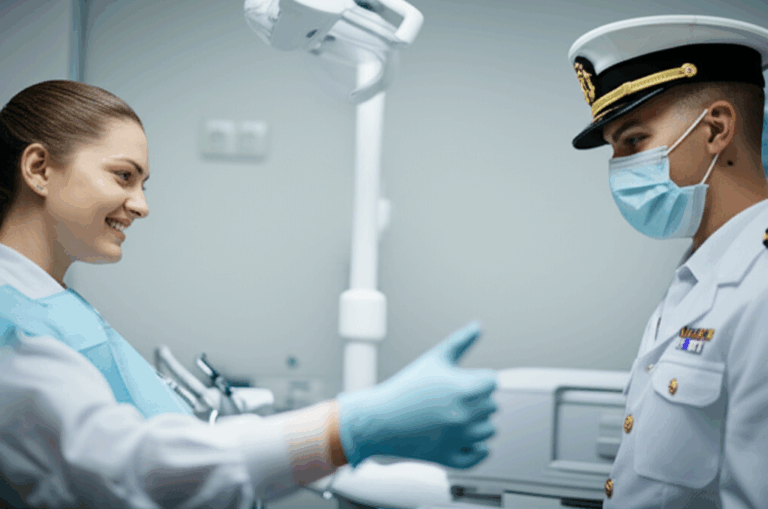
How to Set Up an Appointment with a New Dentist: Your Complete Step-by-Step Guide
That knot in your stomach about seeing a new dentist? You’re not alone. Maybe you’ve moved across town, lost dental insurance coverage, or just weren’t clicking with your last provider. Or maybe, you’re trying to get caught up on some overdue dental care with new motivation. Whatever brought you here, you have good reason to want this first appointment to go well. If you’ve ever wondered, “How do I make an appointment with a new dentist—without the stress or confusion?” you’re in exactly the right place.
Let’s walk through this together. By the end of this guide, you’ll know how to pick the right dentist, what to ask, what to bring, and how to help things go smoothly—no matter your dental background or insurance situation.
In This Article: What We’ll Cover
- Why You Might Be Seeking a New Dentist
- Finding the Right New Dentist for You
- Vetting Potential Dentists and Offices
- Making the Initial Contact to Book Your Appointment
- Preparing for Your First New Dentist Appointment
- What to Expect During Your First Visit
- Tips for a Smooth Transition
- Frequently Asked Questions (FAQs)
- Your Healthy Takeaway
Why You Might Be Seeking a New Dentist
Let’s start with a question you might be thinking about: Is it normal to switch dentists? Yes, it is! People change dentists for lots of reasons, and sometimes life just gives you a new ZIP code or insurance plan. Here are some of the main reasons:
Common Reasons for Finding a New Dentist
- Moving to a new area: Your drive is different—or maybe you just want a dentist closer to work.
- Change in dental insurance coverage: Insurance companies change, and sometimes your dentist isn’t in your plan anymore.
- Not happy with past care: Maybe you didn’t connect with your last dentist, or you didn’t like their style of care.
- Special dental needs: Kids, special treatments, sedation, or help with dental fear can all mean looking for someone new.
- Wanting something different: Some people want a practice that’s more modern, friendly, or gentle.
Whatever your reason, starting with a new dentist lets you put your comfort and health first.
Finding the Right New Dentist for You
Finding a new dentist isn’t just about searching online and picking the first one that pops up. It’s about your health, your peace of mind, and your wallet. Here’s how to find a dental place that really fits your needs.
Ask People You Know: Get Referrals
When you buy a car or pick a babysitter, you ask people you trust, right? Do the same for your teeth.
- Ask friends, family, and coworkers who they like going to. Their stories can help you know what to expect.
- Ask your current dentist or doctor if you’re moving—they might know someone and help move your records for you.
Use Online Search & Review Sites
Of course, searching online helps too. Some tips:
- Try looking up “dentist near me,” “family dentist [your city],” “kids dentist [ZIP code]”—these are common searches.
- Check out websites like Zocdoc, Healthgrades, Yelp, or Vitals. These have real reviews, ratings, and info about dentists.
- Look for patterns in reviews, not just the star ratings. Do people say the staff are friendly? Is scheduling easy?
Double-Check Your Insurance
Dental insurance can be confusing. Here’s how to keep it simple:
- Call your insurance company or log in to your account. Make sure the list of dentists is up to date.
- Call the dentist’s office and check if they take your plan (PPO, HMO, Medicaid, or Medicare).
- Know the difference between in-network (usually cheaper for you) and out-of-network.
Look at the Dentist’s Website
A dentist’s website is like their handshake online.
- Does the office provide the care you need (checkups, emergencies, kids’ care, fixing teeth)?
- Is there a review section or a page on their philosophy?
- Can you see photos or take a look at the office?
- What’s the feel: super formal, or cozy and inviting?
Picking the right dentist is mixing research, checking the basics, and how you feel about the place.
Vetting Potential Dentists and Offices
Okay, so you’ve got a list. Time to check a little more, and make sure you choose the dentist that’s best for you.
Check Qualifications and Special Training
You want a dentist who knows their stuff. Here’s how:
- Make sure the dentist is licensed in your state and if they’re a member of the American Dental Association (ADA)—this shows they keep learning new things.
- Ask about special training. Need braces for your teen, or thinking about fixing broken teeth? Ask what experience they have.
- For example, if you want advanced treatments like dental implants, the office might work with an implant dental laboratory for exact results.
Think About Distance, Hours, and Extras
Let’s be real—convenience matters.
- How far is it from home or work? Is parking easy?
- Are there evening or weekend times when you need them?
- Does the office have ramps, elevators, or quiet spaces for people with extra needs?
Get a Feel for the Office
Sometimes, one visit or look is all you need.
- Is the office clean and modern?
- Is the staff welcoming?
- Are there things to help with dental fear, like headphones, cozy blankets, or someone to explain everything as you go?
A lot of offices put virtual tours on their site so you can look around before you visit.
Making the Initial Contact to Book Your Appointment
You’ve found the ones you like. Next? It’s time to reach out. Don’t worry, you don’t need a script—just some handy questions.
Calling the Dental Office: Good Questions
Most people still call to make an appointment. Good questions to ask:
- Are you taking new patients right now?
- Will you take my insurance?
- What payment choices do you have—cash, payment plans, credit?
- What is your cancellation or reschedule policy?
- What does a first appointment usually include?
- How much does a first checkup, cleaning, or X-rays cost?
If you’re worried about anything, just say it. If you get nervous at dental appointments, ask what they do to help anxious patients.
Using Online Booking
Many clinics now let you book appointments online.
- Make sure your details are right—insurance info, why you’re coming in, and your contact information.
- Check your day and time, and look for a confirmation email or text.
- Some offices will let you do new patient forms online—this saves time when you get there.
Online systems are super convenient, and you can use them any time, not just during business hours. They’re more common every year.
Preparing for Your First New Dentist Appointment
Getting ready is half the work. It’s like packing your bag for a trip—you want to have everything you need.
Gather What You Need
Here’s what you should bring:
- Dental insurance card (if you have one)
- A photo ID
- A list of your medications (including how much you take), allergies, and any health problems
- Contact info for your last dentist—so your records can be moved
- Any past dental records or X-rays you already have
Tip: If you have a tricky health history (like heart issues, joint replacements, or medicines that cause bleeding), bring a note or paper from your doctor.
Fill Out New Patient Forms
Dentists need to know your story to help you.
- Medical history: Illness, surgeries, long-term problems
- Dental history: Cavities, fillings, pain, habits like grinding teeth
- HIPAA forms: Allow your info to be shared the right way
- Some offices send these by email or have them online so you can fill them out early.
Make a List of Questions or Issues
Write things down! Examples:
- “Can you help with my nervousness about dentists?”
- “What do you recommend for keeping my teeth healthy?”
- “Will I get X-rays today or later?”
- “I notice my gums bleed sometimes—is that okay?”
Ask anything you want. No question is too small.
What to Expect During Your First Visit with a New Dentist
First visits set the mood for the rest of your care. Here’s what usually happens:
Check-In and Paperwork
When you arrive, you’ll fill out or hand in forms, insurance card, and ID. If you did it online, you saved yourself a wait!
Full Dental Exam and X-rays
Most dentists start with a big checkup for new patients:
- Looking at your medical and dental history so they know you
- A thorough check of your teeth, gums, jaw, bite, and a quick look for oral cancer
- Digital X-rays: Help spot hidden problems. (Sometimes old X-rays are fine if not too old.)
- If you’re worried about X-rays, ask about digital ones—these use less radiation.
Dental Cleaning
Many places give you a full cleaning your first visit. A hygienist will get rid of hard-to-reach plaque and tartar, then polish your teeth. This is important for stopping gum disease and keeping teeth healthy.
Talking About What They Found
- The dentist talks about what they see—good, bad, or in-between.
- If you need more care, you’ll get a simple action plan with steps, prices, and timing.
- This is your time to ask questions and understand your choices.
If you’re interested in cosmetic changes, your dentist might talk about treatments with ceramic crowns, veneers, or even custom work from a dental ceramics lab.
Tips for a Smooth Transition to Your New Dental Practice
Switching dentists means a few things behind the scenes.
Ask for Your Dental Records
Your new dentist needs to know your past—especially if you’ve had special treatments or surgeries.
- Call your last dentist and ask for your full records to be sent (email is fastest) to your new provider. You may fill out a form to allow this.
- Make sure to include recent X-rays and treatment notes.
Know About Checkups and Scheduling
- Ask about regular cleanings (usually every 6 months).
- Take note of how often you should come back, especially if you have gum disease or dentures.
- If you want more involved care, some offices team up with a full arch dental lab for advanced work.
Tell Them If You’re Nervous
Don’t just put up with being scared—tell them! Modern dental offices can help with:
- Numbing creams
- Soft music, blankets, or stress balls
- Sedation (pills or laughing gas)
- Explaining things step by step
Confirm Appointments and Understand No-Show Policies
Once you book, expect appointment reminders by call, text, or email. Confirm if they ask you to—this helps save your spot.
- Ask about canceling rules. Most places need 24-48 hours to cancel without a fee.
Frequently Asked Questions (FAQs)
Q: How long does it usually take to get a new patient appointment?
A: Most places can see new patients in 1-4 weeks, depending on how busy they are or if you have pain.
Q: What if I don’t have dental insurance?
A: Many dentists have lower cash prices, deals for new patients, or payment plans. Community clinics and dental schools are good, too.
Q: Can I switch dentists easily?
A: Yes. Just move your records and double-check your insurance.
Q: Do I need a referral to see a dentist?
A: Usually no. You might need one for a specialist (like root canals or gum work), but not for regular dentists.
Q: What’s the difference between a general dentist and a specialist?
A: General dentists do basic care—checkups, fillings, and cleanings. Specialists get more training for things like root canals, gum disease, or braces.
Your Healthy Takeaway
Here’s a quick summary to help you feel better about it all:
- Changing dentists is normal and okay. Do it for your comfort and health.
- Ask people you trust, check reviews, and use your insurance info to find a good fit.
- Bring your info and ask questions—talking helps you get good care.
- Get ready before your visit. Preparation helps your first appointment go well.
- Speak up about your needs, worries, or insurance. Dentists want to make you comfortable.
Ready to start? Your path to a healthy smile starts with one phone call or a simple click. Don’t put off making that first visit—sooner means answers, relief, and confidence.
And if you’re curious about new dental tech, see how a good 3D dental lab can make custom pieces for your mouth—your dentist’s team works to help you behind the scenes.
Remember: Being ready and asking questions is the best thing you can do for yourself. Your teeth—and your future—will thank you.
Sources & Further Learning
- American Dental Association (ADA): Find a Dentist
- MouthHealthy™ by ADA – Topics A-Z
- Healthgrades: Choosing the Right Dentist
- CareCredit – Dental Financing Options
For more on new dental labs and patient care, our site keeps you updated about ways the dental team helps your health, one smile at a time.
Smarter patients have healthier smiles. Take your next step, knowing you’ve got the info you need.








